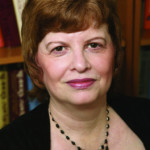Defining moments. The memories of some shine bright and others may dissipate, but the hurtful ones have a way of recurring. No matter how many times you find your way to the other side of grief, those cold winter nights can bring them back with a hindsight enhanced by maturity, experience, and reflection. On these occasions, I ask myself, Why, after so many years, does my mother’s story still resonate so strongly? Because even though I cannot change the past, I can now establish some stability and restore some sanity to my memories. Perhaps I can also help others. That is what gets you through the grief.
But I knew none of this on September 10, 1963. Classes, a snack with friends, and a bus ride home. Nothing unusual! Nothing disquieting! Nothing to warn me! And then, everything changed. My parents were both home; panic on their faces. Cancer had crossed our doorstep—and I was no longer 15 years old.
For my mother had an advanced case of facial cancer, and in the 1960s, recovery meant removing all the affected facial structure; it did not equate with restitution of functionality or quality of life.
And although all cancers can be devastating, this one was particularly cruel. Not a cancer whose effects could be “hidden,” but a visible cancer. For my mother had an advanced case of facial cancer, and in the 1960s, recovery meant removing all the affected facial structure; it did not equate with restitution of functionality or quality of life. My parents were naïve; anything to survive was the mantra of the day.
The surgery and its aftermath were a rude awakening. We were unprepared for the noticeable and permanent changes in her appearance. At the hospital, a resident warned me to “be prepared,” that “she looked very different,” and that I “should try not to react negatively.” He then walked away. I entered her room alone; I still shudder at the memory.
Although she tried to resume her activities at home and work, her prosthetic device was unwieldy and unreliable. Retirement became inevitable. Still, she survived more than thirty years with astonishing bravery. Her resilience rested on three factors: The care she took with her appearance; her love of family; and a housecleaning of friends. New friends were not told what had happened; perhaps they would pretend not to notice. People who did not know her before could hardly make comparisons. She never gained strength from sharing problems. But such privacy exacts a price; you lack a support group. I never knew how others handled these challenges or if there was a better approach. We just moved forward one day at a time.
Still, even tragedies have positive effects. I learned what was important in life. I was spared the worst of the teenage experience in the turbulent 1960s, but I was also denied much of the fun. My world suddenly had a different center—an adult focus that was much more serious. The years passed; some were harder than others; sometimes the strain overwhelmed her. New illnesses and injuries took their toll. Her memory of events became clouded; minor disagreements from years gone by were revived as major disputes; and she sometimes withdrew from conversations. She stretched out on a couch, remaining motionless and disengaged. At first, I attributed these changes to frustration and pain, to her unwillingness to cope with it all anymore.
Despite the best efforts of doctors, she just wasted away—and her face just disappeared. Nothing prepares you for it. It is an image that haunts you and an experience that never dies.
But then, one evening in October 1995, my mother again spoke the word “tumor.” By now, I was much less innocent, but the diagnosis was even worse—she had squamous cell cancer of the face, a disease that visibly destroys facial tissue until nothing is there. Despite the best efforts of doctors, she just wasted away—and her face just disappeared. Nothing prepares you for it. It is an image that haunts you and an experience that never dies.
Each doctor took us on a different emotional ride. Some were more hopeful, but unrealistic; the more realistic ones were tactfully honest. For a family that talked as much as mine did, conversations no longer translated into effective communication. We reacted differently and never reconciled our responses. She investigated all options; perhaps an alternative existed. If not, we would be better able to accept the final decision—to gain comfort on the other side of death—by knowing that at least we had tried everything, even if, in the end, we could do nothing.
Her decision to refuse surgery came as no surprise. She always believed that if she had truly understood the implications of her first surgery, she would have refused, accepted palliative care, and then gracefully let go. When times were particularly difficult, she would say, “By now I would have been gone, and you would have been over my death.” This time, she simply said, “No more.”
Dissension within the family about the right steps to take was part of the process of acceptance, but it exaggerated philosophical, lifestyle, and personality differences. Frustrated by a situation we neither created nor could control, angry that she was made to suffer so much yet again, digging deeper and deeper for the strength to visit as the disease took over her face, our love for her made us argue more strongly for what we each believed was correct. Unfortunately, the result was not respect for each other’s position, kindness toward each other’s suffering, an appreciation of how much we all cared, or even the realization that all of our activities, however different, were the mind’s way of keeping us busy until we were ready to cope with reality. Instead, these resentments grew and festered until communication became nonexistent. Unfortunately, my father simply did not have the finesse, patience, or understanding to unite us. As the months went by, he became more angry and bitter. Without my mother to balance him, he became a much harsher person, less tolerant and forgiving of others. He needed a target for his pain. He needed someone to blame.
She died late on August 6, 1996.
So, why now? Why is it haunting me again? Because I want things to change. In a visit to a head and neck surgeon’s office, I saw how much still needs to be done. Dozens of people were in the waiting room, some with young children in tow, as if this were a routine checkup. A mother and daughter sat next to me; I could hear their conversation. No one had laid a foundation for this visit. Questions on the check-in forms about end-of-life plans, medical directives, and living wills provided a reality check that indicated none of this was routine. Only those who had undergone the extensive surgery had that look of true understanding.
Families divide, argue, and sometimes never heal. We each have to find a way out to the other side of our grief.
So, while researchers have made gains in reconstructive surgery techniques, while physicians are more sensitive to the emotional impact of this disease, and while therapists offer more effective counseling, the reality is still harsh and unforgiving. Families divide, argue, and sometimes never heal. We each have to find a way out to the other side of our grief.
Facial cancer is not much spoken about publicly, except in vivid public service announcements about the horrors of smoking. When I learn about someone who has been diagnosed with this disease, I feel an immediate bond. People I do not know; it matters not. But few confront it twice—and once is more than enough.
So, why this recurring need for catharsis? How do you get through the grief? Watching someone experience intense and visible suffering over a long period of time gives you an opportunity to adjust–to accept, plan, and think about moving forward without regrets or anger. The end brings some relief, but it takes longer to forget what you saw and smelled, fill the hours of the day with new activities, and reach the point where your memories focus on happier times. The horrors fade; the bad nights come less often; you move on.
With the right attitude and a shifted perspective, you can learn to be upbeat—to live by all the clichés about appreciating the good days, enjoying life to the fullest, and not sweating the small things. You’ve seen the worst; now appreciate the positive. You find it pointless to complain about the mundane—so the weather was cold, the traffic impossible, work particularly difficult—nothing is really bad compared to what you have witnessed.
But then comes that cold night, when something unexpectedly takes you back—a birthday, a holiday, a photograph that accidentally peeks out of that drawer of odds and ends—and you go through it again. Each time is less intense and the years between episodes lengthen, but these catharses of reflection are necessary. Although you believe you are over your grief and you no longer want to dwell on the subject, remembering matters. It lets you focus on the important things in life and perhaps your story helps others about to embark on this difficult journey—helps them find a better and more constructive way than we did to handle the trauma and the grief.
Maybe grief has more than one side. How many times do you go in and come out? As many as you need.
***
 Barbara A. Chernow, PhD is the founder of Chernow Editorial Services, Inc., which has coordinated production on more than 1100 professional books in the fields of clinical medicine and business management for publishers in the US, UK, and Germany. She was managing editor of the biographical supplement to the International Encyclopedia of the Social Sciences and the Macmillan Encyclopedia of Architects, as well as lead editor of the Columbia Encyclopedia, 5/e, for which she was interviewed on 70 radio and television stations nationwide. In 2007, she authored Beyond the Internet: Successful Research Strategies. She has taught scientific and medical editing at New York University and business writing and communications at Parsons The New School. For her contributions to Cure magazine on the subject of head and neck cancer, see www.curetoday.com/community/
Barbara A. Chernow, PhD is the founder of Chernow Editorial Services, Inc., which has coordinated production on more than 1100 professional books in the fields of clinical medicine and business management for publishers in the US, UK, and Germany. She was managing editor of the biographical supplement to the International Encyclopedia of the Social Sciences and the Macmillan Encyclopedia of Architects, as well as lead editor of the Columbia Encyclopedia, 5/e, for which she was interviewed on 70 radio and television stations nationwide. In 2007, she authored Beyond the Internet: Successful Research Strategies. She has taught scientific and medical editing at New York University and business writing and communications at Parsons The New School. For her contributions to Cure magazine on the subject of head and neck cancer, see www.curetoday.com/community/

